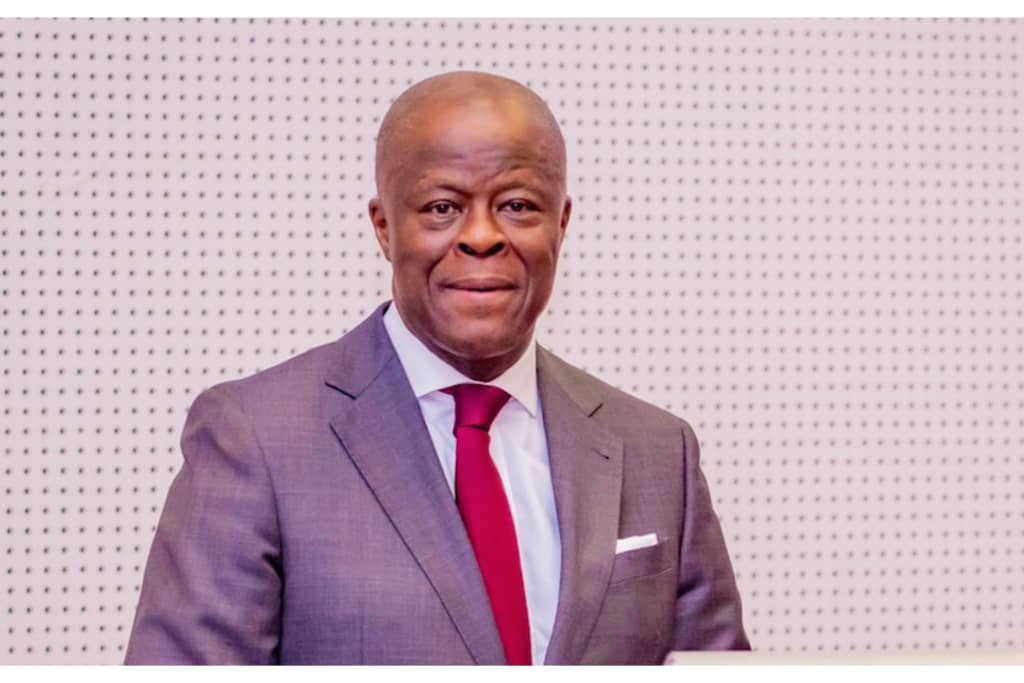Headlines
2024 budget: Why we stand against the act of borrowing — Finance Minister

Mr. Wale Edun, the Coordinating Minister for the Economy and Minister of Finance, has provided an explanation for why the current administration was hesitant to rely too heavily on borrowing to fund the 2024 budget.
According to Edun, the country needs to take the initiative to raise enough money and be committed to lowering its enormous current financing deficit.
When the Finance Minister came before the joint Senate Committee on Finance, Appropriations, National Planning, Local and Foreign Debt on Thursday to review the Fiscal Strategy Paper and Medium-Term Expenditure Framework for 2024–2026, he made the submission.
In the company of Mr. Zacch Adedeji, Executive Chairman of the Federal Inland Revenue Service (FIRS), and Ms. Patience Oniha, Director General of the Debt Management Office, Edun announced that increasing spending on revenue-generating infrastructure was the most effective way for Nigeria to finance its yearly budgets.
He added that developed countries have raised interest rates in an effort to control inflation and stabilise their economies.
Given the current interest rates, he informed the Senate Committee that obtaining loans from overseas was becoming more difficult.
“Clearly, given the current environment, both domestically and internationally, we are not in a position to rely on borrowing,” he stated.
We already have a borrowing profile in place. Our strategy for tariffs is to lower the amount borrowed or intercepted deficit funding in the budget for 2024.
To put it simply, wealthy nations are focused on lowering the rate of inflation globally in order to stabilise their economy and create opportunities for further investment.
They are giving up on the immediate goal of shrinking their economies, or at the very least, the money supply, and raising interest rates. Of course, high interest rates and investments don’t mix.
It is the final thing we must rely on because the remaining options for us to get those monies are costly.
As far as we are aware, all the numbers add up to debt service and cushioning, which accounts for 98% of government revenue.
“Adding to your debt is the last thing you should consider doing. The government must not only continue operating, but also increase spending. When it comes to government spending and the budget as a proportion of GDP, we have one of the lowest at 10%. Ghana is just slightly higher at 25%, while the wealthy are at 50%.
“Social security systems in the wealthiest and most developed nations account for 70% of Gross Domestic Product. Spending by the government will undoubtedly rise.
“Oil revenue is the main source of income, particularly in the short term and even in the medium term.”
READ ALSO: Nigeria’s debt is manageable, and increased revenue is essential – Edun
Sani Musa, the chairman of the joint panel and a senator from Niger East, had earlier in his speech voiced serious concerns about several revenue-earning agencies’ forecasts for 2024.
He pointed out that seeking outside assistance would undoubtedly be unfeasible as it would force the nation to continue funding its deficit.
“There are a lot of leakages in the use of government resources currently,” he stated.
“Most MDAs make a lot of revenue, but many of those funds are not remitted when they should. Some even send money back a year after receiving it.
“The Federation’s Office of the Accountant General ought to carefully investigate that area.
The MDAs’ existing practise of postponing revenue payments has made it possible for those cash to be stolen.
“We discovered after our discussion with Nigerian Customs Service representatives yesterday that they are facing numerous deficiencies due to waiver occurrences.
“We are curious as to who is granting such waivers. Which is it, the Ministry of Finance or the FIRS?
Details about the e-customs project, which is a Customs modernization initiative, are also of interest to us.
The nature of the agreement that was signed on behalf of the Federal Government of Nigeria is of interest to the Senate Committee on Finance.
What does the e-customs agreement mean? What is Nigeria’s expectation?
“We are fed up with judgement debts popping up everywhere. In order to avoid running a deficit budget the next year, we must be aware of the current plans in place for the collection of excise taxes and other tariffs.
